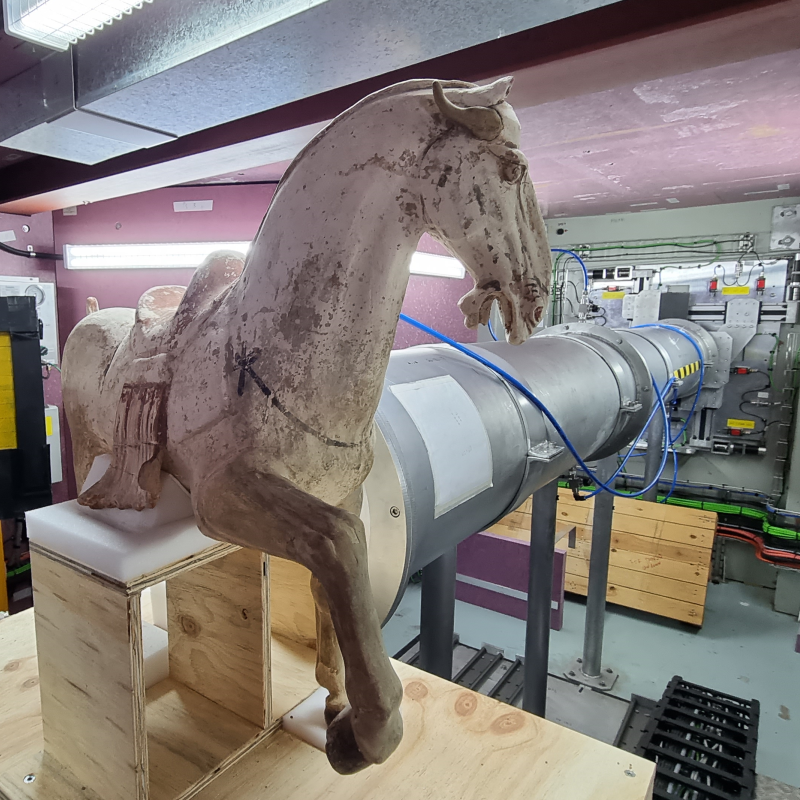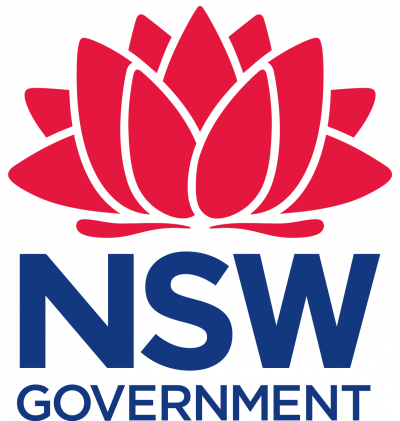
Nuclear investigations of cultural artefacts (Stage 4, Stage 5, Stage 6)

ANSTO and Powerhouse collaborate to make the Invisible Revealed using nuclear and forensic methodologies to investigate artefacts.
ACTIVITY OUTLINE:
This is a recording of a webinar held in March 2022 and suitable for inquisitive learners in Years 9-12 studying Stage 5 Chemical World, and Stage 6 Chemistry and Physics.
The Invisible Revealed at Powerhouse is a collaborative exhibition developed with the Australian Nuclear Science and Technology Organisation (ANSTO) and the University of NSW. It was on show at Powerhouse and is accessible through digitised assets. It demonstrated how working scientifically has permitted detailed investigation of historic collection artefacts including Japanese katanas, a second minting Lydian coin, clocks, cameras, and rugs.
Using Australia’s largest particle accelerator, a synchrotron in Melbourne, and their neutron imaging instrument, scientists, engineers, and curators explored the fundamental properties of matter to reveal the invisible. Museum Collection artefacts’ internal structures, composition, and digital restoration via Artificial Intelligence (AI) have given historians revolutionary investigative opportunities. Non-destructive testing preserved the integrity of artefacts for future generations and clarified authenticity, provenance, internal structure, and even hidden purposes.
IS THIS A FREE EVENT? Yes
BROUGHT TO YOU BY: Powerhouse
SPECIAL GUESTS:
Dr Joseph Bevitt is a Senior Instrument Scientist at ANSTO, responsible for operating the neutron imaging instrument “Dingo”. Dr Bevitt obtained his PhD in chemistry from the University of Sydney in 2006. He has shifted his research focus from new materials to the study of dinosaurs, Egyptian mummies and other artefacts.
Dr Rachel White is the Sample Environment Group Leader at ANSTO. After completing her PhD studies in electron microscopy with artistic paint pigments, Dr White has undertaken laboratory management and quality systems roles.
Dr Deborah Lawler-Dormer is the Research manager Powerhouse. She has a PhD in transdisciplinary technoscience arts, jointly supervised by University of Auckland and University of New South Wales.
Event Details
Event Type
On Demand (available until: 22-May-2027 11:59PM)
Delivery Platform
Duration
Curriculum
Secondary
Syllabus Outcomes
SC5-16CW,CW1,CW2,SCLS-2VA, Chemistry Module 8: Applying Chemical Ideas
Main KLA, Strand, Sub Strand
Science and Tech » Chemical World 7-10
Other KLAs
Science and Tech » Chemistry
Careers
Learning Intentions & Success Criteria
Participants will learn to:
- Identify various pathways into STEM careers and interests
- Explain new discoveries made with nuclear investigations
- Identify ethical and cultural issues relating to scientific investigations of artefacts
Success can be measured by the ability of the learners to:
- Explain the key points raised in the program
- Describe the the strengths and weaknesses of nuclear investigations of artefacts
- Suggest novel opportunities for similar investigations along with ethical considerations
- Argue pros and cons of nuclear investigations
Joining The Event
Technology and Materials Requirements
This webinar was recorded live in March 2022. After you book your place, a link to the recording will be sent to the email you have registered with.

